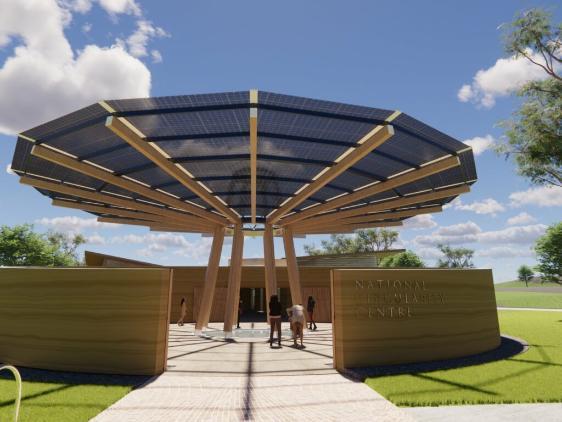Case studies
A new, multi-purpose tourism, community and research hub, the National Circularity Centre (NCC) will be built in the Bega Valley on the NSW South Coast, to develop market-leading research and demonstrate replicable models for the circular economy.
The Centre will keep resources in use for as long as possible, extracting the maximum value from them while in use, before recovering and regenerating products and materials at the end of their life.
The University of Wollongong, through its membership of the Regional Circularity Cooperative (RCC), will be a driving partner to establish the Centre, bringing research expertise in energy, materials innovation and sustainable building practices.
The NCC will be a test case for scalable solutions with potential for world-wide application. It will offer business and edu-tourism opportunities where visitors can see solutions they can implement in their own workplaces and homes.

- SGD 2 - Zero hunger
- SDG 3 - Good health and wellbeing
- SDG 6 - Clean water and sanitation
- SDG 11 - Sustainable cities and communities
- SDG 12 - Responsible consumption and production
- SDG 17 - Partnerships for the Goals
Learn why Bega Valley is the perfect location to prove the concept of the circular economy
/filters:format(jpg)/prod01/channel_3/assets/contributed/research-and-innovation-division/global-challenges/Goal-6.jpg)















